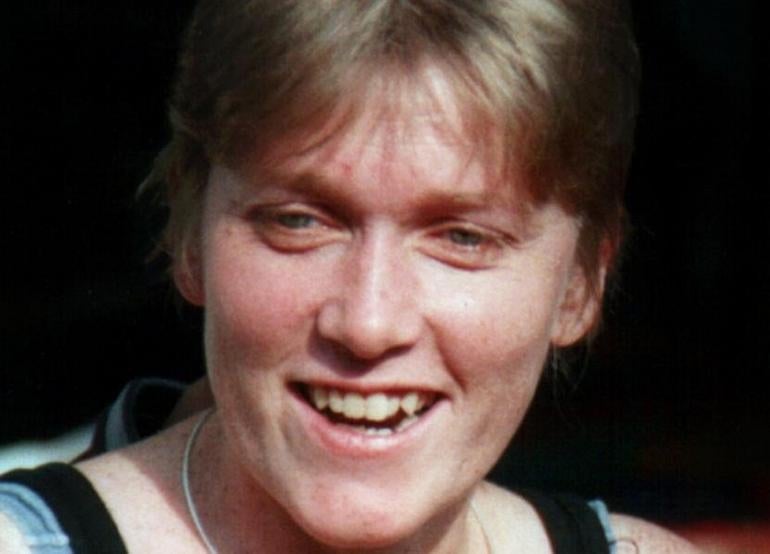
A former BBC foreign correspondent has questioned whether the stories BBC journalist Kate Peyton was working on when she was gunned down in Somalia were worth the risk.
Producer Kate Peyton, 39, of Beyton, Suffolk, was shot outside a hotel in Mogadishu, Somalia, in February 2005.
Peyton, who was based in Johannesburg, South Africa, had travelled to the war-ravaged country with freelance reporter Peter Greste because the BBC felt that the story of Somalia’s development was “important”.
But Ishbel Matheson, a former BBC East Africa correspondent, questioned whether the story was worth the risk.
“At the end of the day this is a couple of features for World Service Television… and a couple of colour pieces,” Matheson told an inquest in Ipswich, Suffolk.
“For me it is a question really, was it worth it to go for basically that kind of colour story.”
Matheson, who was based in Nairobi between 2001 and 2005, told the inquest that although she was based in Africa for a long time, she was “always very reluctant to go to Somalia”.
The inquest has heard that Somalia had been without effective government since the early 1990s and was torn by civil war.
BBC safety advisors classed this as a “category one hostile environment” and accepted the need for journalists to travel with armed soldiers hired locally.
Peyton was shot while getting into a car outside a hotel a few hours after arriving in the Somali capital.
Matheson, who is now head of communications for a human rights group, said it was known among BBC journalists that Mogadishu was “no joke”.
She told coroner Peter Dean: “One of the questions in my mind was, was the story big enough and the amount of exposure the story was going to get big enough for me to take the inevitable risk of going to Somalia.”
Matheson told the inquest that she had worked for the BBC for nearly 15 years and was a friend of Miss Peyton.
She said she had dinner with Miss Peyton in Nairobi the night before the reporter flew on to Mogadishu.
Matheson told the court that Peyton was aiming to marry her partner Roger Koy and hoping to adopt his daughter Chloe.
She also said Peyton felt under some pressure at work because her commitment to travelling around Africa had been questioned by her boss in Johannesburg, Milton Nkosi.
“Basically it was a job which involved lots of travel,” said Matheson. “I think Milton Nkosi had expressed doubts to her that she had not been as willing to travel and to go on big stories as she had been previously, probably because of changes in her personal life.”
Matheson added: “She did feel that she was under some pressure to prove herself in the Johannesburg job.”
Matheson said Peyton did not want to travel to Somalia and added: “She didn’t want to go. She had other things to do.”
But Matheson told the court that Peyton had not raised any particular concerns about safety during their dinner.
“She never mentioned that she was anxious about security or the safety aspects of the trip,” added Matheson.
“If she had truly felt that her life was in danger going into that assignment she would not have gone. We know we can all say no and turn away from it.”
But Matheson suggested that someone within the BBC should have reassessed the risks Peyton and Greste would face in Somalia.
She accepted that all the necessary procedures had been followed when assessing risk and all necessary forms filled. But she questioned whether a “human judgment” should be made.
“There needed to be somebody from outside just coming in and saying, ‘Let’s just have a look at what you guys are doing. Is it important enough given the risks on the ground?’,” Matheson told the inquest.
“It is important… to have somebody sitting back making a human judgment outside the form filling process.”
Milton Nkosi, Peyton’s boss in South Africa, said he raised the issue of what he perceived to be Peyton’s “lack of focus” on the morning of 2 February 2005.
Later that day, she was offered the assignment to Somalia, the inquest was told.
“We discussed Kate’s performance on February 2. It was not the first time I had discussed issues relating to her lack of focus as I saw it at that time,” Mr Nkosi told the hearing.
“This was an ongoing conversation I had at the time and it was ongoing for several months.”
But Nkosi said he had “reassured” Miss Peyton that he would recommend that her contract be extended.
“I reassured her, as I had done in the past, that I will recommend to London… that her contract be extended so she need not worry about the contract because I was confident that London (BBC bosses) would take my recommendation seriously.”
But in his statement, read out to the inquest, he said discussions he had earlier with Miss Peyton might have made her “particularly keen” to go on the trip to the Somali capital.
“I accept that it may have been that Kate, having had a discussion about the renewal of her contract, was particularly keen to take on new assignments and, for this reason, took on the Mogadishu assignment, even though she had concerns about going.”
The inquest was told Peyton was informed that her performance would be reviewed six months after any new contract was offered.
Email pged@pressgazette.co.uk to point out mistakes, provide story tips or send in a letter for publication on our "Letters Page" blog







